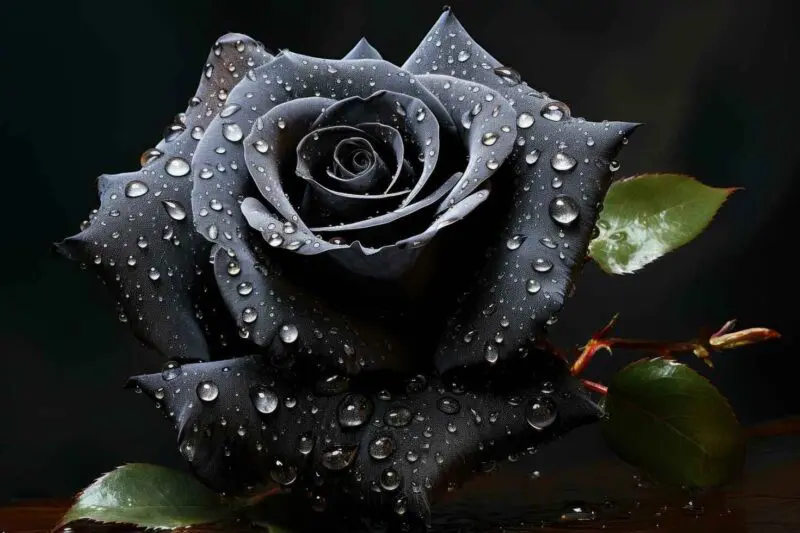Introduction
Have you ever stopped to admire a beautiful flower and felt a sense of peace wash over you? Ever wondered if these delicate blooms carry deeper meanings?
Flowers, with their varied hues, scents, and forms, have been symbols of emotions and ideas for centuries. Among their many representations, healing stands out as a particularly powerful and comforting symbolism.
In this article, we’ll dive into the world of flowers that symbolize healing, exploring their meanings, stories, and the quiet power they hold.
Short Answer
Flowers that symbolize healing often carry a dual message of hope and renewal. These blooms, with their soothing colors and shapes, are believed to bring a sense of calm and recovery. From the vibrant sunflower to the serene lavender, each flower has a unique way of conveying the spirit of healing and rejuvenation.
Lavender: A Scent of Serenity
Lavender, with its soothing purple hues and calming fragrance, is a symbol of tranquility and healing. Often associated with relaxation and peaceful sleep, lavender is also known for its medicinal properties. Its presence in a garden or a room can create a serene atmosphere, promoting mental and emotional healing.
Chamomile: The Comforting Bloom
Chamomile, recognized for its dainty white petals and golden center, embodies the essence of comfort. Widely used in herbal remedies, particularly teas, chamomile is synonymous with soothing anxiety, calming nerves, and promoting a peaceful state of mind. This flower is like a gentle reminder to relax and take a breath amid life’s chaos.
Echinacea: Strength and Recovery
Echinacea, with its bold, cone-shaped flowers, is more than just a visual delight. It symbolizes strength and the body’s ability to heal itself. Widely used in herbal medicine for boosting the immune system, echinacea is a testament to the power of natural healing and resilience.
Sunflower: Brightness in Healing
The sunflower, turning its face towards the sun, is a symbol of optimism and recovery. Its bright yellow petals radiate joy and are often associated with happiness and vitality. Sunflowers remind us that following the light, even in difficult times, can lead to healing and growth.
Peony: Blossoming Health
Peonies, with their lush, full blooms, represent a blossoming of health and well-being. These flowers are often associated with healing due to their lush, vibrant appearance, which symbolizes life and renewal. A bouquet of peonies can lift the spirits and bring a sense of hope and rejuvenation.
Daisy: Simplicity and Wholesome Healing
The daisy, simple yet elegant, represents purity and innocent healing. Its clean white petals and sunny center are reminiscent of youthful energy and straightforward health. Daisies are like a breath of fresh air, bringing a straightforward, uncomplicated approach to recovery and well-being.
Aloe Vera: The Healing Plant
Aloe Vera is not just a plant but a symbol of soothing healing. Known for its gel-filled leaves, it’s widely used for skin treatments, burns, and cuts, embodying physical healing. Aloe Vera represents the nurturing care and the rejuvenating touch of nature.
Rosemary: Remembrance and Recovery
Rosemary, with its aromatic leaves, is traditionally seen as a symbol of remembrance. Beyond its culinary uses, it also signifies recovery and the rejuvenating power of memory. Planting or gifting rosemary can be a gesture of wishing good health and a sharp mind.
Marigold: The Healing Glow
Marigolds, with their bright orange and yellow blooms, symbolize a glowing, vibrant form of healing. Often used in medicinal remedies for their antiseptic and healing properties, marigolds represent the warmth and energy needed for recovery and revitalization.
Gardenia: Peaceful Healing
Gardenias, known for their creamy white flowers and intoxicating fragrance, symbolize peace and healing. They are often associated with quiet, reflective recovery, offering a sense of calm and purity in times of healing.
Related Questions
What Flowers Are Best for a Get Well Soon Bouquet?
The best flowers for a ‘Get Well Soon’ bouquet would include a mix of lavender, chamomile, and daisies. These flowers not only brighten up the space but also carry a deep symbolism of healing, comfort, and purity.
Can Flowers Have a Real Impact on Health?
Yes, flowers can positively impact health, particularly mental and emotional well-being. Their colors, scents, and overall presence can reduce stress, improve mood, and even enhance air quality, contributing to a healthier environment.
How Can I Use Flowers for Healing in My Home?
Incorporating flowers like lavender, aloe vera, and gardenias in your home can create a calming atmosphere. You can use them in various forms, such as potted plants, fresh bouquets, or even in dried arrangements, to harness their healing energies.
Are There Any Healing Flowers That Can Be Grown Indoors?
Many healing flowers, like aloe vera, lavender, and chamomile, are suitable for indoor cultivation. They can thrive on window sills or in bright, airy rooms, bringing their healing properties right into your living space.
What’s the Significance of Gifting Healing Flowers?
Gifting healing flowers like peonies or echinacea is a thoughtful way to show care and concern. It symbolizes a wish for strength, recovery, and well-being, making it a heartfelt gesture for someone going through a tough time.
Scenarios Related to Healing Flowers
| Scenario | Flower | Short Description |
| Hospital Visit | Lavender | Bringing a lavender plant for a calming atmosphere. |
| Wellness Spa | Chamomile | Chamomile decor for a soothing, tranquil environment. |
| Meditation Room | Gardenia | Gardenias for a peaceful, meditative space. |
| Recovery Gift | Sunflower | A bouquet of sunflowers to brighten a patient’s day. |
| Stress Relief | Aloe Vera | Aloe Vera plant in a workspace for stress reduction. |
| Memory Boost | Rosemary | Rosemary plant in a study area for enhanced memory. |
| Home Remedy | Echinacea | Echinacea in a home garden for natural remedies. |
| Emotional Support | Daisy | Daisies in a bouquet for cheerfulness and support. |
Detailed Descriptions
- Hospital Visit – Lavender: Bringing a potted lavender plant to a hospital room can help create a calming and soothing environment, aiding in the patient’s relaxation and recovery.
- Wellness Spa – Chamomile: Incorporating chamomile flowers in a wellness spa can enhance the ambiance with their delicate appearance and gentle, soothing aroma, promoting relaxation and well-being.
- Meditation Room – Gardenia: Placing gardenias in a meditation room adds a touch of serenity and peace. Their creamy white blossoms and sweet fragrance contribute to a reflective and calming space.
- Recovery Gift – Sunflower: Gifting a bright and cheerful sunflower bouquet can uplift the spirits of someone recovering from illness, symbolizing hope and positive energy.
- Stress Relief – Aloe Vera: Keeping an Aloe Vera plant in a workspace can serve as a natural stress reliever. Its green, soothing presence can bring a sense of calmness and tranquility.
- Memory Boost – Rosemary: Planting rosemary in a study area or office can help enhance memory and concentration, owing to its aroma and symbolism of remembrance.
- Home Remedy – Echinacea: Growing Echinacea in a home garden provides easy access to a natural healing herb, known for boosting immunity and aiding in various home remedies.
- Emotional Support – Daisy: A bouquet of daisies can be a thoughtful gift for someone in need of emotional support, representing purity, innocence, and cheerfulness.
Additional Symbols
Lotus: Purity and Spiritual Healing
- Represents spiritual awakening and purity of body and mind.
- Symbolizes overcoming adversity and emotional healing.
- Often associated with meditation and inner peace.
Jasmine: Sweet Comfort
- Symbolizes sweet, comforting presence in times of need.
- Represents affection and warmth, aiding in emotional healing.
- Used in aromatherapy for its soothing and calming effects.
Forget-Me-Not: Enduring Remembrance
- Represents lasting memories and comfort in remembering loved ones.
- Symbolizes faithful love and eternal remembrance.
- Often given as a gesture of not forgetting someone’s impact on our lives.
Conclusion
Flowers are not just a feast for the eyes; they hold profound meanings and symbols, especially in terms of healing.
Whether it’s the calming scent of lavender, the cheerful appearance of sunflowers, or the spiritual symbolism of the lotus, these blooms offer more than just beauty. They provide comfort, symbolize hope, and promote healing in various forms.
By incorporating these flowers into our lives, we invite a sense of peace, well-being, and rejuvenation.




